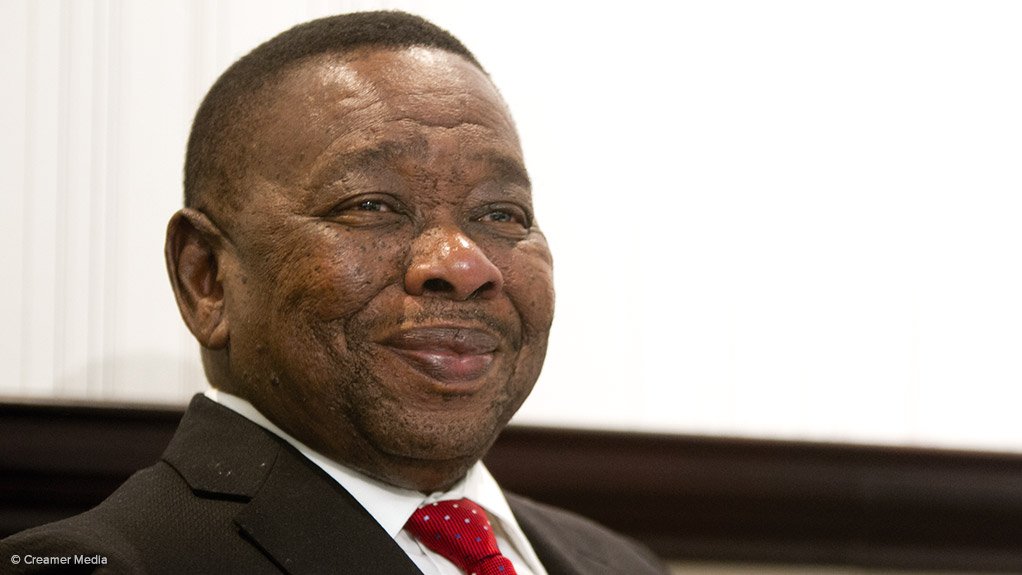Higher Education and Training Minister Blade Nzimande has hinted that the answer to his department's future funding woes could lie in the Department of Basic Education's budget.
Addressing Parliament's portfolio committee on Higher Education yesterday‚ he said that the funding crisis was the problem of all post-school education facilities including universities and colleges.
But he said‚ the division of revenue between national and provincial budgets‚ particularly in education‚ needed to be reviewed.
Careful to point out that he was not going after the basic education department's budget he said: “Our own initial assessment is telling us that assumptions of the percentage of learners at school between grades 1 and 12‚ that percentage is higher than the reality because of a very high drop out rate after grade nine in particular”.
He said all those who left school‚ became the responsibility of his department.
“Those who have left school are our responsibility immediately. Our sense is that we are sitting with an unfunded mandate. We need to really interrogate this‚ look at it broadly‚” he said.
Nzimande also made it clear that there was just no way that government could finance free higher education for everyone.
“Government's policy is free higher education for the poor. We can't afford for everyone. Wealthy students must pay. They have an economic advantage‚” he said adding that with adequate funding‚ this would be feasible.
His deputy minister Mdudzi Manana meanwhile appeared to break from the ANC party line condemning the police heavy handedness during the protests‚ saying "we must commend our police because we would be sitting with another Marikana”.
He was responding to questions from the committee chair Pinkie Phosa who wanted to know if there was a way to ensure that water cannons were used‚ rather than rubber bullets‚ stun grenades and tear gas.
He said the police had shown “remarkable restraint” in dealing with students who had “provoked” them‚ adding that the storming of Parliament and the Union Buildings‚ both national key points “should be discouraged”.
The police and IPID will appear before the portfolio committee on police next week to explain how the breach of security at Parliament occurred and for IPID to detail any complaints they may have received as a result of police actions on the day.
A plan to detail where the R2.6-billion funding shortfall created by the zero percent fee increase is expected to be released today (Thursday)‚ Nzimande said during Tuesday's parliamentary debate on the issue.
- Earlier this week‚ Stats SA released a report showing how South Africans without a Matric swell the ranks of the jobless.
This was apparent in the latest third quarter Stats SA Quarterly Labour Force Survey‚ which also showed that unemployment had worsened from the previous quarter.
Over 20 million people do not earn an income in our economy – a greater number than those who do.
Stats SA said the working-age population was 36.1-million of which 15.8-million were employed‚ 5.4-million unemployed and 14.9-million not economically active.
Key points from the report:
- More than half (58%) of the black African and coloured unemployed had an educational level of less than matric.
- Black male graduates are most likely to land a job ahead of candidates from other race groups.
- More white graduates are struggling to find jobs.
“The proportion of unemployed white graduates increased (by 3‚2 percentage points) from 8‚5% in Q3: 2014 to 11‚7% in Q3: 2015.”
- Fewer than half of white and Indian employees have a post-Matric.
The report states: “The highest share of the employed population with tertiary qualifications (graduates and other tertiary) is found among the white and Indian population groups. In Q3: 2015‚ 48.6% of employed white persons and 33.8% employed Indians had a tertiary qualification”.
EMAIL THIS ARTICLE SAVE THIS ARTICLE
To subscribe email subscriptions@creamermedia.co.za or click here
To advertise email advertising@creamermedia.co.za or click here











